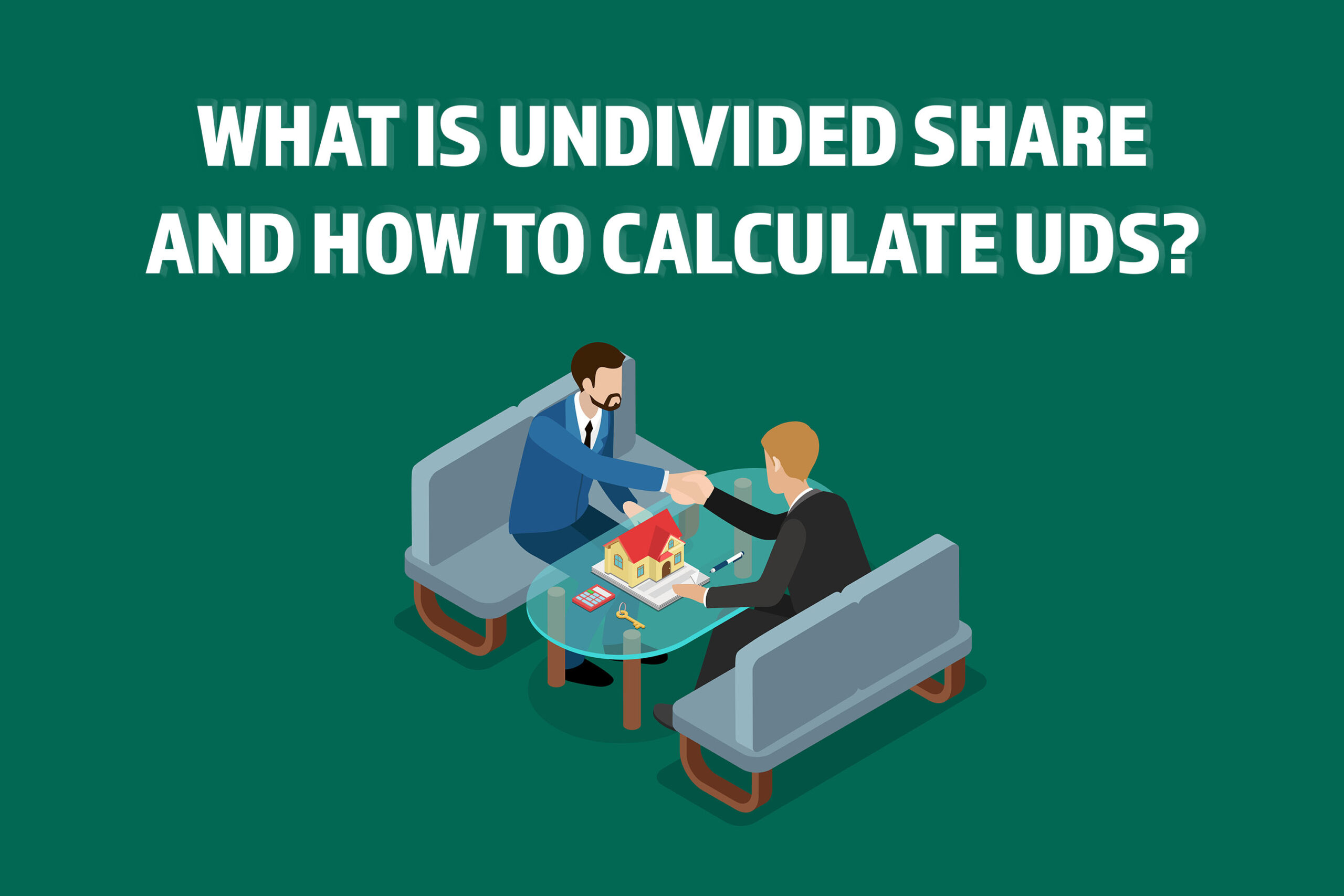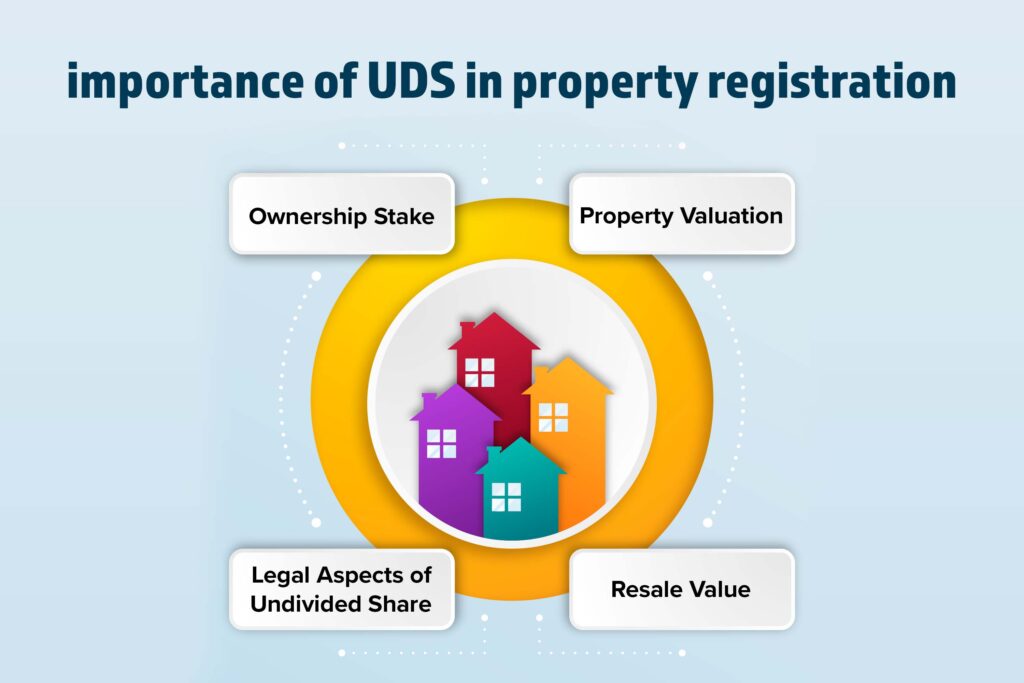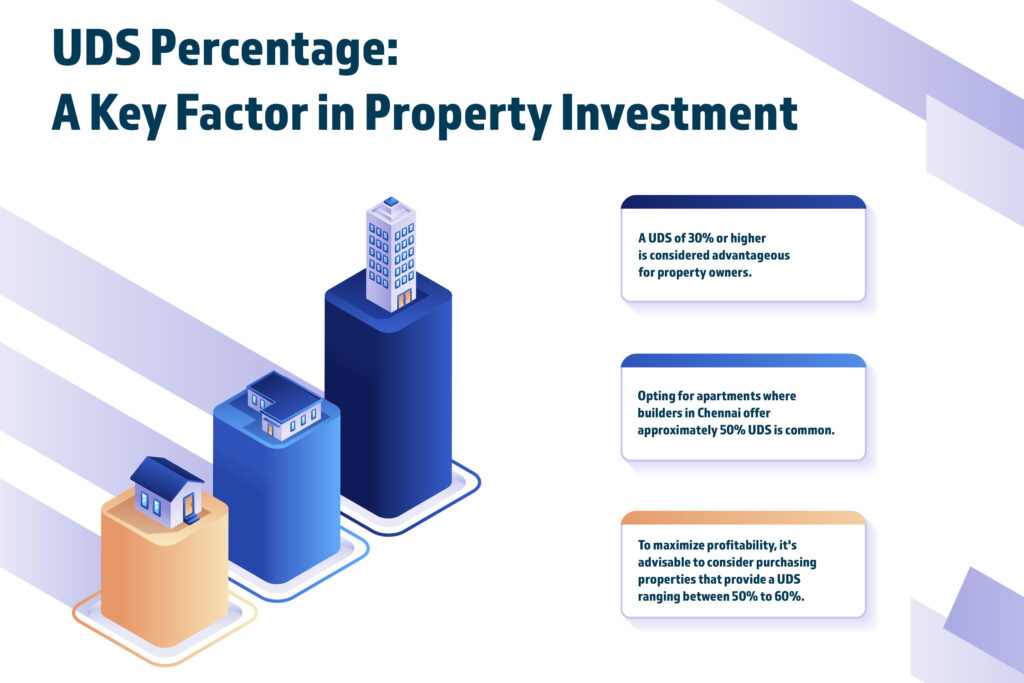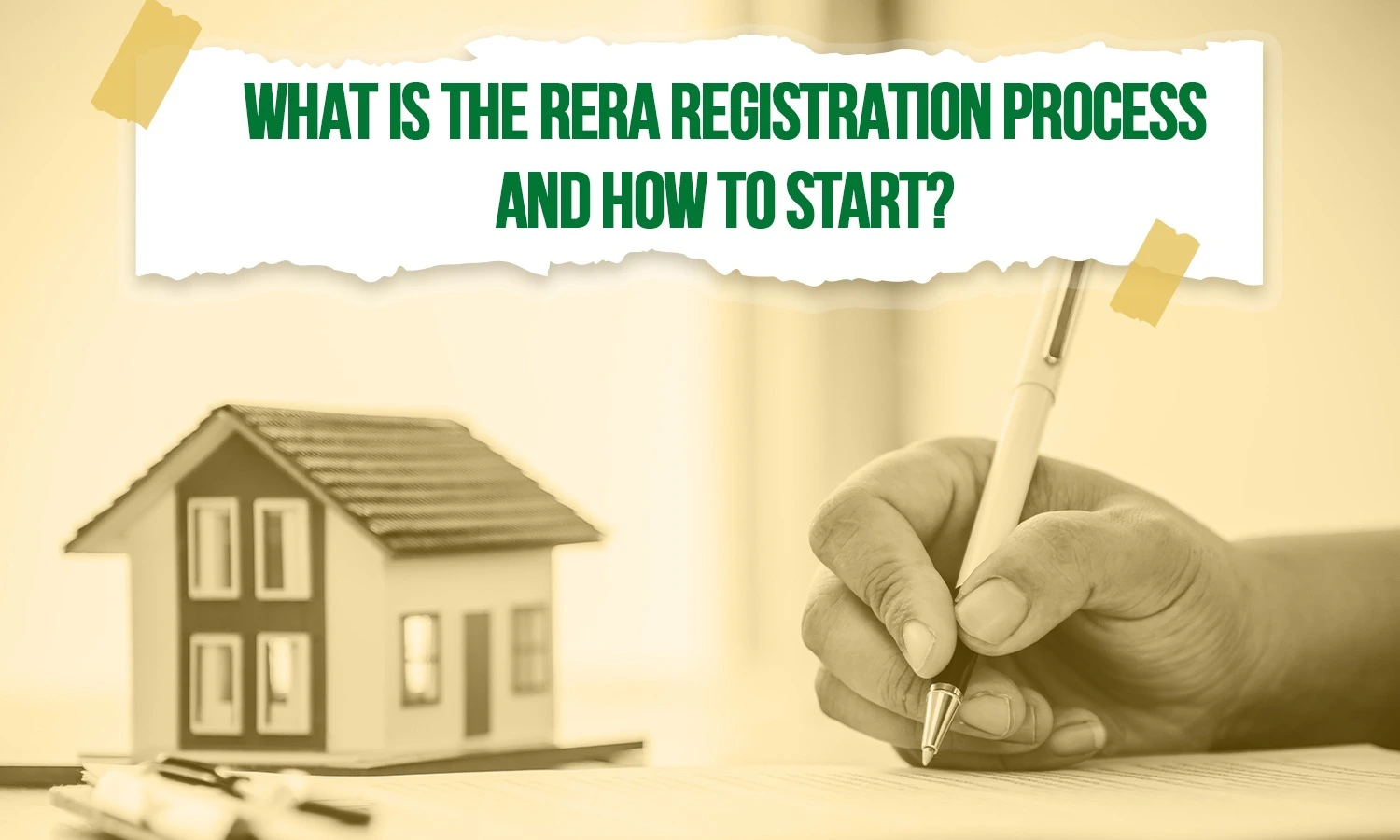
What Is Undivided Share and How to Calculate Uds?
In the world of real estate transactions, certain terms carry significant weight, dictating ownership and rights over a property. Grasping What is Undivided Share is key, especially if you’re eyeing a spot in a housing complex or diving into property trades. Time to unpack Undivided Share, let’s explore what it means, its impact, the way we calculate it, and all that is legally tied to it.
What Is Undivided Share (Uds)?
Undivided Share meaning is the portion of land owned by an individual within a larger property. In simpler terms, it signifies the percentage of ownership or rights a buyer holds in the common property concerning the total land area of the housing society or project.
In real estate, particularly in housing societies or apartment complexes, buyers do not own specific portions of the land outright. Instead, their ownership is represented by the Undivided Share of the total land area. This forms the basis for UDS and property ownership in housing societies and is delineated in the housing society’s share certificate.
What Is the Importance of Uds?

knowing the importance of UDS in property registration is key, Here’s why UDS holds significance:
- Ownership Stake: UDS defines the owner’s legal rights and ownership stake in common areas within a property or housing society.
- Property Valuation: It influences property valuation as a higher UDS often indicates better access to common facilities, thereby increasing the property’s market value.
- Legal Aspects of Undivided Share: In legal battles over property, UDS is the ace up your sleeve, ensuring a square deal on shared amenities for all owners.
- Resale Value: It impacts the UDS and property resale value of the property. A robust Universal Design Standard not only catches the eye of prospective buyers but also boosts your property’s chances of fetching a higher price when it’s time to sell.
What Does Uds Stand For in Real Estate?
UDS in real estate denotes the proportional share of ownership of common areas or amenities allocated to individual property owners within a housing society or a building. UDS acts like the rule book for splitting up shared spots in a building, which really matters when you’re dealing with property deals.
What Is the Benefit of Uds?
The bigger your UDS, the more common areas and perks you own. A higher UDS implies a larger ownership share in common areas and amenities within the property or housing society. Owning a flat with a higher UDS not only boosts its market worth but also grants you more perks and a louder voice when it comes to shaping the community.
What Is the Use of Uds in Flat?
UDS in a flat or apartment determines the extent of ownership in common spaces or amenities like parking lots, corridors, elevators, gardens, etc. The share of these common facilities is distributed among flat owners based on their UDS.
Why Is Undivided Share(Uds) Important?
UDS matters because it guarantees every homeowner a fair shot at using and taking care of the shared spaces. To ensure fair access and upkeep of shared spaces, UDS calculates each owner’s percentage of ownership.
How to Calculate Undivided Share(UDS) of Land?
Wondering How to calculate UDS. The calculation of Undived share UDS involves a straightforward formula:

For example, if an apartment has an area of 1200 sq ft in a building comprising 10 apartments on 10,000 sq ft of land:

What Is an Example of Uds?
An example of UDS (Undivided Share) real estate in Chennai would be if a housing society with multiple apartments on a shared piece of land allocates specific square footage from the overall land to each apartment owner as their undivided share. For instance, if a building encompasses ten 2 bhk apartments in Chennai on 10,000 sqft of land, each owner might have a designated UDS based on their apartment’s square footage, entitling them to a portion of the common areas or amenities.
If you are curious about learning more about Real Estate Market, please take a moment to read this blog. – “What do we need to see if we buy a new Flat in Chennai.”
What Percentage of UDS is Good?

A higher percentage of UDS is generally preferable as it signifies a larger ownership share in common spaces. Typically, a UDS of 30% or higher is considered advantageous for property owners. Opting for apartments where builders in Chennai offer approximately 50% UDS is common. To maximize profitability, it’s advisable to consider purchasing properties that provide a UDS ranging between 50% to 60%.
Can Undivided Property Be Sold?
Yes, undivided property can be sold legally by following proper procedures and documentation. When you sell your slice of the undivided property, you’re handing over your rights to that piece to the new owner. But to make the sale legit, you’ve got to play by local property rules and get the right clearances. Consulting legal experts is advisable to ensure a smooth and lawful sale of undivided property.
Therefore, In real estate builders transactions, the term Undivided Share (UDS) is essential for establishing ownership rights, valuing properties, and allocating common spaces fairly across housing societies or buildings. To navigate laws and ensure fair transactions in the real estate market, Understanding Undivided Share is a must for buyers and sellers of real estate.
At Vijay Shanthi Builders, they shine a light on the perk of high UDS ratios in their properties, giving you more control over the shared spaces. They make it a point to clarify the ins and outs of UDS, so everyone gets a fair shake when sealing property deals. At Vijay Shanthi builders explore 2 bhk flats for sale in Chennai below 50 lakhs and an apartment for sale in manapakkam . Vijay Shanthi’s unwavering focus on the undivided share of land (UDS) shows their strong commitment to ensuring that everyone gets a fair shake in property deals.
FAQs
What is Meant by an Undivided Share in Common Property?
An undivided share in common property represents an owner’s stake in shared spaces within a housing society or building.
Can You Build a House on the Undivided Share in Common Property?
Building on an undivided share in common property usually requires approval from all owners and compliance with legal regulations.
Does an Undivided Share of Common Property Require a Patta?
Yes, an undivided share of common property usually requires a Patta or legal documentation for ownership rights.
Certainly, you can pass on a piece of the land to someone else if you dot your i’s and cross your t’s with the legal steps.
Is It Possible to Gift an Undivided Part of the Land?
Yes, gifting an undivided part of the land is feasible but requires proper legal documentation and compliance.
Chandan Jain
I'm Chandan Jain, Managing Director of Vijay Shanthi Builders. My journey into the realm of construction and urban development began with a profound passion for excellence and innovation. Join me as we explore the dynamic world of real estate, discovering top properties, understanding market trends, and making informed decisions together.
Related Posts
What Is The RERA Registration Process And How To Start?
What Is The RERA Registration Process And How To Start? A Foundation Built on TrustIn
7 Benefits Of Installing Glass Windows For Home
Introduction – A View That Speaks of You In a well-crafted home, even the simplest
5 Vastu Tips for a Peaceful Home Environment
Introduction Your home is more than just walls and furniture — it’s a space that



